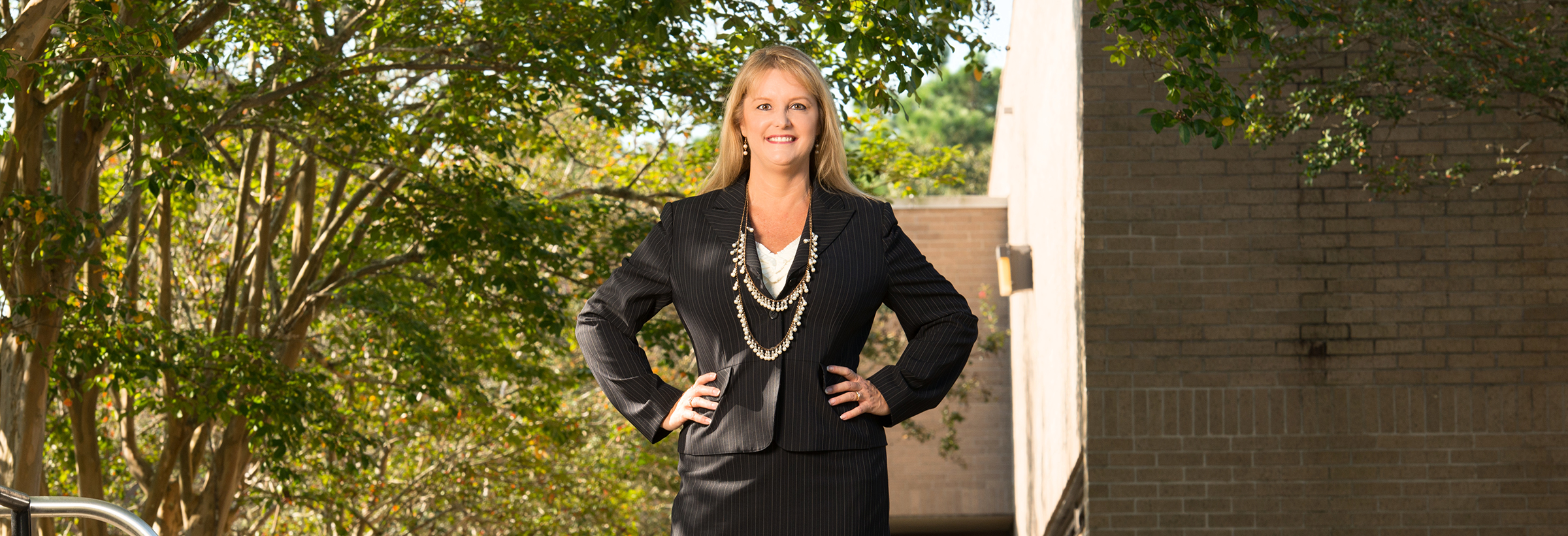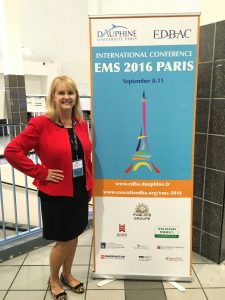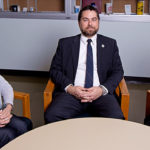Executive Mentoring Successfully Increases Workforce Readiness
Pensacola – College graduates entering the workforce are usually prepared with technical or hard skills, such as those associated with accounting, economics or marketing, business executives say. However, they often lack those soft skills associated more with personal characteristics such as communication, team building, critical thinking, professionalism and self-confidence.

To address this gap in soft skill knowledge, Dr. Sherry Hartnett, a clinical assistant professor at the University of West Florida, established the Executive Mentor Program in the College of Business, where she teaches.
The program, which began five years ago, pairs business executives with juniors, seniors and graduate students for one academic year.
The mentees and mentors meet at least one to two hours a month for a one-on-one exchange designed to focus on the development of necessary skills. Once acquired, these skills are then put into practice with monthly programs that include meet-and-greet networking events, lectures and training workshops that focus on such topics as leadership skills.

During every year of the program, Hartnett gathered and analyzed data to research its effectiveness. Earlier this month, she presented her findings at The International Engaged Management Scholarship Conference in Paris.
Her presentation on “The Effects of a Business Executive Mentoring Program on College Students: A Study on Augmenting Workforce Readiness Capacity” offered these practical implications for management:
- “The soft skills of professionalism, communication, leadership, critical thinking and self-confidence are significant to forming workforce readiness.”
- “There is a positive relationship between effective mentoring and workforce readiness.”
- “Business executives would be well advised to act as mentors to support students with their personal and professional growth to prepare them for successful careers.”
Hartnett discovered from the reaction during the question-and-answer session following her presentation that the soft skills issue is not just one that happens in the United States.
“I talked to people from England, France, Lebanon and Australia who agreed,” Hartnett said. “It’s global.”
This realization fueled her enthusiasm for the mentor program and her research even more.
“I would like to turn this into a longitudinal study at UWF,” she said. “That way I can dive deeper into the issue. I would also like to add qualitative data to the study as wells as look at whether it makes a difference if the mentees are graduate or undergraduate students. There are many ways that we could slice and dice a more detailed study to gain further insight.”



